Plants ordered now will ship Spring 2026 🙂
Ashwagandha, African Ecotype (Withania somnifera) potted plant, organic
$8.50
Family: Nightshade (Solanacea)
Hardy to Zones 8 to 12
Native to Africa, this is an ecotype with large leaves and very fast growth. Traditional usage (dried root): (Ayurveda and Dawa za Asili): energy and sexual tonic. Plant prefers full sun, fast-draining, alkaline (pH 7.5 to 8.0) soil and dryish conditions. Sweeten regular garden soil with ground limestone. Space 1 foot apart–grows 2 to 3 feet tall, producing eventually the lantern-like pods enclosing the pea-sized fruits, green at first and becoming bright red as the inflated calyx dries and becomes transparent.
Potted Plant, Certified Organically Grown

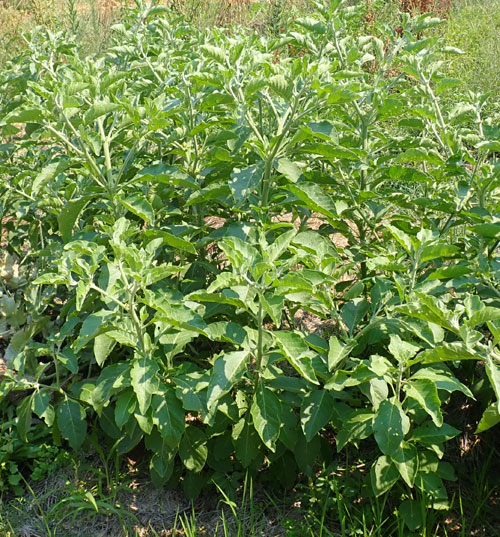
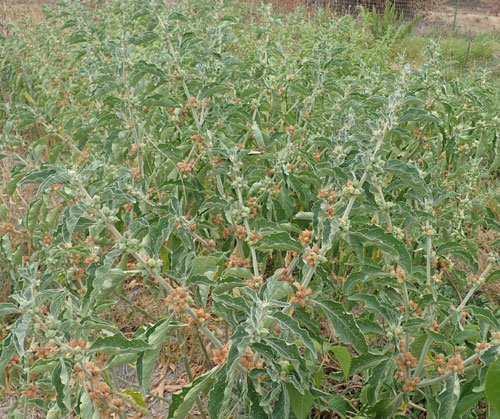

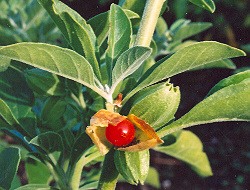
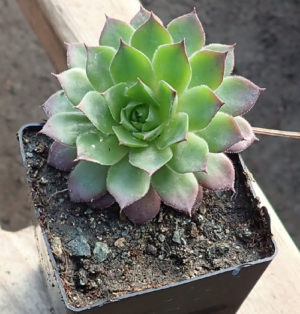
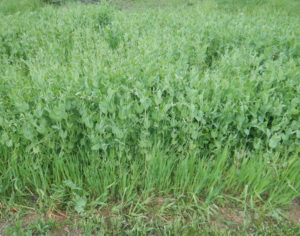
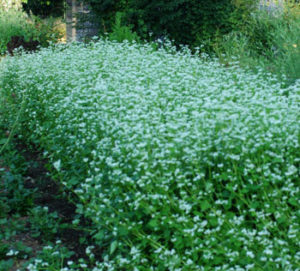
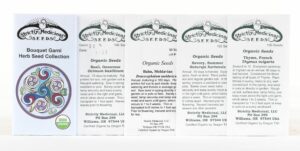
verastar –
I’m in 7b central NC. I tend to have good luck with heat loving and varieties of African, Indian and Indonesian origins. Deep summer heat is pretty strong. Do you think this zone 8 designation would have some wiggle room for my 7b? Probably will be zone 8 in a couple of years if climate continues to change as it has.
Upvote if this was helpful (1) Downvote if this was not helpful (0) Watch Unwatch Flag for removal
Richo Cech –
Hello Verastar,
Thanks for writing. Gardeners have good results growing the african ecotype ashwagandha as a summer annual regardless of zone. For overwintering as an herbaceous perennial i do think zone 8 is the minimum. Even in Africa, this is generally grown as an annual. Perennializing ashwagandha is possible but not necessarily the goal. richo
Upvote if this was helpful (1) Downvote if this was not helpful (0) Flag for removal
Richo Cech –
Hi Loren, Ashwagandha acts as an herbaceous perennial in zone 8. That means, that when the tops die back, there is still a budded root underground set to re-emerge when the weather warms up again. If the root freezes deeply, it is likely to lose its life force. You did the right thing by bringing them in to protect the root through the winter. Richo
Upvote if this was helpful (1) Downvote if this was not helpful (0) Watch Unwatch Flag for removal
ritatemplephotography –
Can you eat the pea sized fruits?
Upvote if this was helpful (1) Downvote if this was not helpful (0) Watch Unwatch Flag for removal
Richo Cech –
hi rita, there’s not much ethnography to go on to answer this question. one source states that the berries are used for coagulating milk in cheesemaking–a rennet substitute. In that case I guess one would be eating some of it. richo
Upvote if this was helpful (1) Downvote if this was not helpful (0) Flag for removal
Roger Hale –
Can i buy just the dormant root?
Upvote if this was helpful (1) Downvote if this was not helpful (0) Watch Unwatch Flag for removal
Richo Cech –
you might be able to buy the seeds. we can’t ship live plants or roots to belize.
Upvote if this was helpful (1) Downvote if this was not helpful (0) Flag for removal
Rebecca –
I have a high tunnel greenhouse to grow Few herbs for personal use. Do you ship barefoot plants. I’m in Missouri and it gets hot in GH fast
Upvote if this was helpful (1) Downvote if this was not helpful (0) Watch Unwatch Flag for removal
Richo Cech –
Hi Rebecca, thanks for contacting. We sell only the things you find on our website, mainly seeds, potted plants and bare roots. You’re on the african ashwagandha page–we would send you an african ashwagandha in a pot–it would do very well in a hot hoophouse. richo
Upvote if this was helpful (1) Downvote if this was not helpful (0) Flag for removal
Chuck Culbertson –
What zones can this be grown in ?
Upvote if this was helpful (1) Downvote if this was not helpful (0) Watch Unwatch Flag for removal
Richo Cech –
Hi Chuck, you can grow it as a garden annual in any zone. The plant will be an herbaceous or woody perennial in zone 8 and up. Richo
Upvote if this was helpful (1) Downvote if this was not helpful (0) Flag for removal